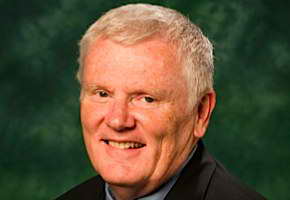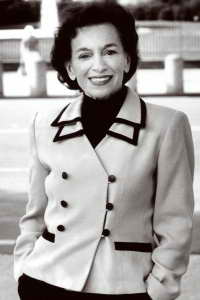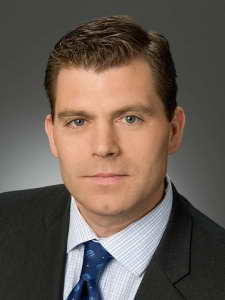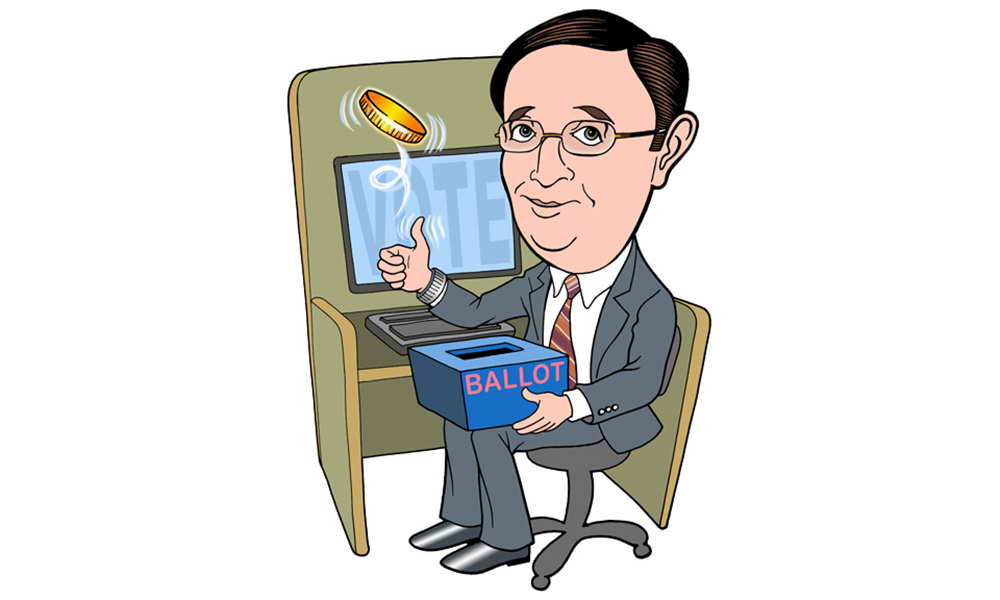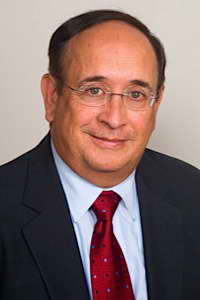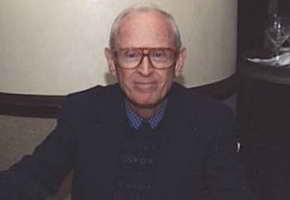Talking to children about money can present its own set of problems. What’s the appropriate age to discuss money matters with your kids? And, how can you teach them financial responsibility?
Parenting and Education Reporter Carol Anne Riddell shared some of her insights with the Marist Poll’s John Sparks. Read the transcript of the full interview below.
John Sparks
Carol Anne, what do you think is a good age to start talking to children about money?
Carol Anne Riddell
Well, it’s an interesting thing. I think that you can start almost at any age, as early as kids are interested in it. I’ve always been surprised at how much kids know even before we think they do, and I think even very young children can really benefit from some discussion about money. I think I first talked to my son, you know, in a more in-depth way about money when he was five or six years old when he started to covet very specific things. I think the key is to keep the conversation age-appropriate and relevant to the things that kids understand or care about.
John Sparks
So what do you tell a six-year-old about money?
Carol Anne Riddell
I think it’s important for children to understand that money is earned and money is a means to get the things that we need and we want, but we, as adults, also have to really stress that there’s lots of things that money can’t buy like health and happiness and some of the things that kids like the best, like playing outdoors or hanging out with their friends. Those things are completely free.
John Sparks
Well now, you have kids yourself, tell me what you tell them about money.
Carol Anne Riddell
I’ve had many conversations, John. I’ve told them that they are lucky that we have enough money to have things that we need and sometimes the things that we want. I try to on a pretty regular basis to give them some financial decision-making power by letting them choose between things, so maybe is it going to be a coloring book today, or is it going to be a ice cream cone. So, they feel like they’ve had some power in that process. We have a tradition in our family: we regularly take the spare change that they save to their local bank and we use the coin counter, and then when we get the cash from that, I let them spend a portion of it, and then they have to take another portion of it and save it, and another portion of it we give to charity which usually means just walking across the street to the soup kitchen or a church in our neighborhood. But, I feel like it’s giving them a very good sense of the different things that money can be used for, not just to get things in the immediate, but to save for things long-term and to help other people.
John Sparks
I think that’s great. Now you know we’re in an economic recession. Does it add to the stress to talk about money problems with children? I know all of us are experiencing instances where we must tighten our belts.
Carol Anne Riddell
You know, as I was saying before, I really think that our kids usually know so much more than we realize about adult topics. So, if we are stressed out about money, they are almost undoubtedly sense that. They overhear our conversations. They pick up information from the news, and even if we are very careful about moderating what we say in front of kids, other adults may not be, and other children may not be. So, I think we have to start from a baseline that they may very well know more than we think. So, if you understand that, the thing is that kids often imagine something worse than the actual reality. You have to remember that kids may think that if they hear a parent talking about being concerned about getting all the bills paid this month you know they may take that and think that it means they’re not going to have a roof over their head, or they’re not going to be able to have food on the table. They may take it at a different level than actually exists, so it’s important, I think, to make sure they understand in a kid-friendly way what actual reality is. We have to be honest with them, but I think as the parents, we have to also be reassuring so that the kids understand that even if families have to make some different, maybe even difficult choices, they will always be taken care of. Another thing that I’ve really heard a lot over the years is that an important thing when you talk to kids about things like this is to follow their lead because you’ll get a sense of when they have enough information so you don’t want to overload them with details they don’t need or they don’t want.
John Sparks
Now, you’ve done several stories about money and kids. What tips have you picked up on how the parents should deal with their kids about money?
Carol Anne Riddell
You know, one of the things that I’ve heard and I’ve thought about a lot myself as a parent, and I think it’s a pretty good point is that adults should distinguish between giving children the opportunity to earn money and spend money and using money as bribery to get the behavior that we want. Also that process of saving for money, saving money for something a child wants, can be really rewarding. My son wanted this particular video game, so he saved for weeks. Then he brought his little toy safe down to the store, and he bought this game, and he was so proud of himself, and I think that the reward of having the game was great in itself, but the fact that he had purchased it made it much more significant to him. It was also hilarious to watch him like crack open the plastic safe at the store, but you know, I think it’s a very important lesson for kids, and it’s a simple thing, but it’s meaningful. Another really important tool is the allowance. Now in our house, the allowance is tied to chores. My kids have to do certain sort of simple chores in order to earn their allowance. Some people disagree with that and feel like chores should be part of just family responsibility and not tied to an allowance. Families do it different ways. I think that you can do that either way, and it’s something you have to be comfortable with, but the allowance itself is a good way to teach kids about I have X amount of money and I want Y, so here’s how long I have to save for it.
John Sparks
I’m curious, when you were a child, did you get an allowance?
Carol Anne Riddell
You know, I did get an allowance, but it was not such a regular thing. Often I went to my parents when I wanted something, and I would ask for money, and sometimes I got it, and sometimes I didn’t. I do remember being rewarded with money for good report cards. Again, that’s something that some people would say is probably not the best use of money, but I don’t think it had any negative effect on me. I think I always understood that the goal was learning and good grades and not that I would get the $20 at the end of the year, the school year, but that’s really sort of an individual choice. I think the allowance concept in itself is a great one, and then each family has to determine what they’re most comfortable with within their own family.
John Sparks
Are there specific things that parents can teach their children about handling money that could make us better off as a whole, perhaps if we had done certain things we could’ve avoided some of the economic pitfalls that we find ourselves in today?
Carol Anne Riddell
Yeah. You know I think, John, yes, yes, and yes. We really need to teach our children the difference between need and want, and this is a conversation that I have with my kids all the time. This moment in history is really one of those what they call — what teachers like to call “teachable moments.” It’s a chance for us to point out repercussions, again in a kid-friendly way, for aggressive greed and dishonesty. It’s also a chance for us to talk to our kids about how connected all of us are. You know when people lose their jobs, they can’t spend their money at the local grocer, the local shoe store, then the grocer or the shoe owner, have trouble paying their bills. I think it’s a good way to show children the way all – – the way there is an interdependency among all of us.
John Sparks
Carol Anne, you reported extensively on public education. What, if anything, are schools teaching our kids about money?
Carol Anne Riddell
I think that the landscape is really changing on that front because I have been in a lot of schools in the last few years that have been getting very serious about this, schools that are teaching financial literacy classes to even grade school, middle school children. Some schools are working directly with banks and other financial institutions. They’re teaching kids how to budget, how to manage a checking account, how to manage a savings account, and I think that a lot of schools look at that as much more a part of the real important curriculum than they used to because we are in such a difficult financial time and kids are going to need those skills.
John Sparks
One of the things that has landed us in this difficult financial situation we find ourselves is credit and being irresponsible with credit. How do you talk to your kids about credit and about being responsible and budgeting and things like doing without?
Carol Anne Riddell
Well you know, we’ve all heard those stories about college kids who end up in tremendous trouble because of credit debt. I think one way to avoid that is to really teach kids money management early on in small ways and in big ways, and I mean when they’re young. For example, let them help you make a budget for going to the grocery store or for a family vacation. Here’s the list of all the things we’d like to do on our vacation. We can only afford to do three of those things. Let’s sit down and look at what each one costs and pick the ones that we want to do. I think it’s a great way for them to understand that we have to make financial sacrifices. I think it’s also a great idea to get kids savings accounts and then to go over statements with them and, again, let them earn money. Let them save money, and then let them purchase something that they’ve wanted. It’s a great lesson. My son, as I said before, has to take out the garbage and the recycling to earn his weekly allowance. It’s taken him a lot of trips to the garbage room to get some of the video games he wanted, but I think the reward is sweeter because of that.
John Sparks
Should our sons and daughters have responsibilities or share the responsibility in contributing to the family’s overall finances?
Carol Anne Riddell
You know, John, I think that it’s a tricky and it’s sort of a complicated question because we all know that there are families for whom there’s just no other choice and a lot of times that’s just the case. But I would say that ideally a child should not have to do anything other than go to school, be a good student, and learn, and that’s the ideal situation. If a child is sort of forced to actually have to go out and earn money, that can really cut into, you know, their ability to focus on academics. Now I have a different opinion on this when we start talking about older children or adult children because I’ve done a lot of stories about adult children returning and living at home, and I think in that case, if you have a college age student who comes back home, I think it’s important that those students, those young people, contribute to the family because it can alleviate a lot of stress if everyone knows what the expectations are for both the parents and the adult children, and I think that also in that case with an older child helps them adapt to what they will face as an adult living on their own.
John Sparks
Carol Anne, obviously you’ve given all these things a lot of thought. Are there any other thoughts that you might have or would want to add in thinking about children and money?
Carol Anne Riddell
You know, I was thinking a little bit about this before we chatted today about what age is great to start an allowance at, and there’s a lot of debate back and forth. I think one of the things I would say is that you have to really listen to your child because some kids can develop a fascination with money very early on, and so it’s important to know your child and what they can handle. Some people say that a good gauge is about a dollar a year, so a five-year-old would get $5 a week, or you know a ten-year-old would get $10 a week. I’ve found that less is more in our case. I usually start on the lower end, and then I move it up about like a dollar a year, and I feel like that’s been pretty effective, but I’ve also noticed real differences between my two children. While my son is very thoughtful about saving his money and wanting to spend his money, my daughter less interested in it, less focused on it, less focused on buying things, and so for her, I haven’t started her an allowance yet because I just don’t think she’s really ready to handle it. So one point I would make to parents is really try to gauge your child’s interest level and their responsibility level before you give them an allowance.
John Sparks
Do you ever have conversations with your kids about envy? For instance, does your son come home and say, “Well, Johnny has this and I want this,” or conversations about greed?
Carol Anne Riddell
Absolutely, a lot of conversations about that, and I think it’s a human reaction. All of us feel envious of something at some point. One of the things I found that’s helpful to get around that is just to acknowledge it, and say, “Well that must be nice that Tommy has X, but let’s talk about the things that you have,” and I don’t necessarily mean materialistic things, but sometimes we’ll go through a list of all the wonderful things in my kid’s life that they should be happy for, they may be material or nonmaterial, and I think in a way it just sort of helps to count your own blessings, and it can bring you back and make you a little more centered. I mean, it works for me as an adult, so I try to make it work for my kids.
John Sparks
Very good. I sure appreciate it Carol Anne. It was great talking with you, and I appreciate your thoughtful answers.
Carol Anne Riddell
All right, thanks so much. It’s been great talking to you.
** The views and opinions expressed in this and other interviews found on this site are expressly those of the speakers or authors and do not necessarily reflect the views of The Marist Poll.
Related Stories:
4/28: Talking to Kids About Money
Kids and Money: Lessons from the Past and Dealing with the Present




